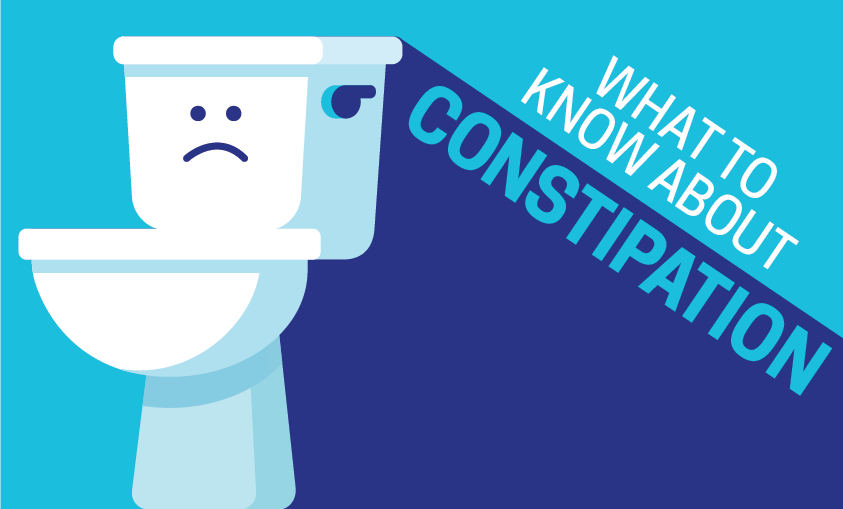What is constipation?
Constipation can be manifested by a number of symptoms. If you have infrequent (less than three (3) times per week) bowel movements or you have hard to pass bowel movements, which are painful or make you have to strain, then you are experiencing symptoms of constipation. It is important to note that constipation is usually a symptom, not a disease. Some of the most common causes of constipation are poor diet, medications, irritable bowel syndrome, poor bowel habits, and pelvic floor dysfunction. Not eating enough fruits, vegetables, and whole grains may make stools hard to pass. The lack of physical activity, in addition to a poor diet will also make you constipated. Finally, changes in your diet, such as when you travel, can lead to constipation.
Many medications can cause constipation, so you should let your doctor know all the medicines that you take.
Constipation predominate irritable bowel syndrome can cause constipation. It usually comes with more belly pain. This is commonly referred to as IBSC.
Pelvic floor dysfunction occurs when the muscles of the pelvic floor do not relax, and this makes it difficult to have passage of stool.
Most people as some point have constipation for a short period and this is a normal issue. Sometimes however, constipation does not go away. You should talk to your doctor if you symptoms are very bad or disabling, and last longer than three (3) weeks. If your stools are consistently thinner or if you see blood in your stool or toilet paper that does not go away, but comes back often, you should seek help from your doctor. If you have anemia or start losing weight without trying to, or have bad stomach pain when you pass stool, you should be concerned and should be contacting your physician to get tested. If your doctor decides your constipation is bad enough, there are a few tests that can be performed. Some common tests are colonoscopy, which is an examination of the entire colon to be sure that no colon cancer or other diseases of the colon that cause constipation are present.
These vary based on the individual. If you know your normal bowel habit you will be able to notice a major change if it occurs.
There are a number of ways you can help regulate your bowel habit, such as keeping a diet with vegetables and fresh fruits, and plenty of water along with regular exercise. You can purchase some over-the-counter things to help treat constipation, such as bulking agents (fiber) to pull fluid into the intestine and make a bigger, heavier stool that is easy to pass. There are some osmotic agents which keep fluids in the stool to make the stool softer and increase the number of bowel movements. There are also stool softeners which also bring fluids into the stool to soften them. Stimulant laxatives can be taken but these make the intestines contract and move the stool along but over time one can become dependent on them. Stimulant laxatives on a regular basis should be avoided.
If the over-the-counter options for constipation do not help, your doctor will be able to discuss prescription medicines to help remedy the constipation or even bio-feedback treatment for pelvic floor dysfunction if it is present.
By Dr. Louis Saco
https://www.mayoclinic.org/diseases-conditions/constipation/symptoms-causes/syc-20354253

